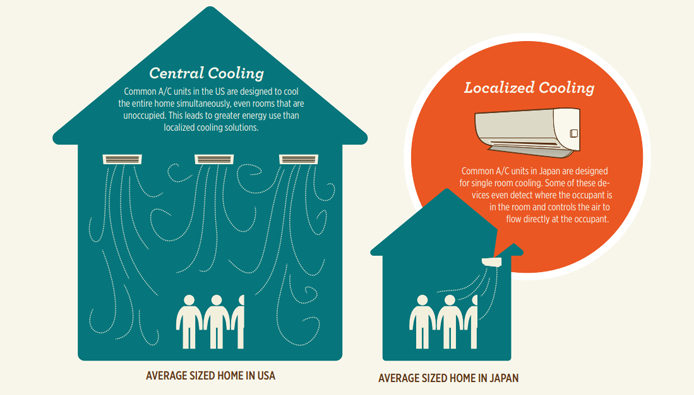UCD researchers conducted a pair of experiments to reduce energy consumption from air conditioning by encouraging alternative cooling methods. In Japan, the researchers conducted an experiment to encourage the use of passive cooling techniques to maintain thermal comfort and reduce air conditioning usage in the summer at E-Sogo, a sustainably-built community in Yokohama, Japan. The experiment focused on behavioral drivers of energy usage within households, and utilized information, commitments, and competition to encourage adoption of alternative cooling strategies. Electricity use from air conditioning dropped by 7% due to the intervention. Slightly higher savings were recorded among households with already relatively low electricity consumption from air conditioning, suggesting that the project encouraged families already motivated to save energy to try alternative methods.
Simultaneously, UCD researchers conducted a randomized control trial in the United States to encourage the use of passive cooling techniques to maintain thermal comfort and reduce summer air conditioning usage at West Village, a net-zero student housing community in Davis, California. The experiment provided information, encouragement, and asked for participant commitments to try alternative cooling approaches. Some behavior change was observed, but electricity consumption from air conditioning remained unchanged due to low participation and failure to engage at the household level, rather than the individual level.
Sponsor: Tokyo Gas Company, Ltd.
Resources
Publications
- Can AC Use be Reduced? Field Experiments to Encourage Adoption of Alternative Cooling Strategies in Japan and the U.S. (2015, Project Report)
- Using social dynamics to explain uptake in energy saving measures: Lessons from space conditioning interventions in Japan and California (2018, Journal Article)
- Can you take the heat? A cross-national comparison of thermal comfort strategies and energy-saving field experiments (2016, Conference Paper)
Additional Resources

